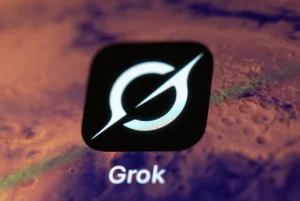Pinterest CEO highlights cost-saving benefits and impressive performance of open source AI.

Image Credits:PATRICK T. FALLON / Contributor (opens in a new window) / Getty Images
Pinterest CEO Discusses Future of AI in Visual Shopping
During an earnings call on Tuesday, Pinterest CEO Bill Ready emphasized the potential of open-source AI models to help the platform reduce costs while expanding its visual AI applications. This development is particularly significant as Pinterest remains a crucial starting point for consumers in their shopping journeys.
AI Integration at Pinterest
Pinterest has been leveraging AI technology to enhance various platform features, including personalized recommendations, multimodal search experiences—where users can search using both text and images—ad targeting, and product discovery. The launch of the AI-powered Pinterest Assistant has further enabled users to interact more intuitively with the site, making it easier for them to find products that align with their interests.
Addressing Investor Concerns
However, investors expressed concerns regarding Pinterest’s potential in “agentic commerce,” which refers to AI systems capable of autonomously acting on behalf of users. As the AI landscape evolves rapidly, stakeholders are keen to understand how these advancements might affect Pinterest’s financial performance and growth opportunities.
The urgency of these questions became evident during the company’s third-quarter earnings announcement. Pinterest projected a weaker-than-expected holiday shopping season, attributing this to the impact of President Trump’s tariffs on the home furnishings category. As a result, Pinterest anticipates fourth-quarter revenues to range between $1.31 billion and $1.34 billion, below analysts’ average estimate of $1.34 billion. This news led to a significant decline in Pinterest’s stock, which plummeted by over 21% the following day.
Cost-Effective AI Solutions
Despite these immediate revenue concerns, Ready highlighted several strategies the company could employ to exploit AI and large language models (LLMs) effectively without incurring substantial costs. He noted that the company routinely tests leading off-the-shelf models against promising open-source alternatives. The initial findings indicate that open-source models offer comparable performance at a fraction of the cost.
“One of the really interesting aspects we’re seeing is the tremendous performance from open-source models specifically tailored for our visual AI use cases,” Ready stated. He further explained that, based on current market rates and token costs, early testing showed dramatic cost reductions with fine-tuned open-source models compared to leading proprietary options.
The company intends to adopt many open-source models for its varied applications, significantly reducing costs compared to larger model providers.
Aligning Value with Monetization
Ready expressed particular confidence in being able to provide value to users while aligning it with monetization strategies. “We feel really good about the value that we’re bringing to the user there, our ability to align that with monetization, and our ability to control those costs and deliver that effectively,” he stated.
Exploring Agentic Shopping
In addition to open-source AI advancements, Ready mentioned that Pinterest is exploring agentic shopping capabilities. Currently, Pinterest facilitates “push-button type buying” through a partnership with Amazon. However, Ready noted that the company will wait to see whether users prefer the AI to automate these purchasing actions on their behalf.
User Guidance as a Differentiator
Ready highlighted that Pinterest’s ability to guide users through the shopping experience sets it apart from competitors. This is an area the company aims to enhance with the introduction of Pinterest Assistant, an AI companion that can engage users in conversation to offer advice and recommendations. The assistant learns about users’ preferences based on their boards, collages, and saved items, providing tailored recommendations that resonate with their tastes.
Personalized Boards and AI Curation
Moreover, Pinterest is rolling out personalized boards that integrate AI with expert human curation. Ready suggested that blending these two approaches ensures a richer, more engaging experience for users, making their shopping journeys simpler and more enjoyable.
Conclusion
As Pinterest navigates an evolving market landscape, the integration of open-source AI models presents an exciting opportunity to enhance user engagement while managing costs effectively. With plans to further develop the capabilities of AI, including the potential for agentic shopping and personalized experiences, Pinterest is well-positioned to remain a vital player in the online shopping ecosystem. This forward-thinking approach may help the company not only retain its user base but also attract new customers in an increasingly competitive digital marketplace.
Thanks for reading. Please let us know your thoughts and ideas in the comment section down below.
Source link
#Pinterest #CEO #touts #open #source #tremendous #performance #reduced #costs





